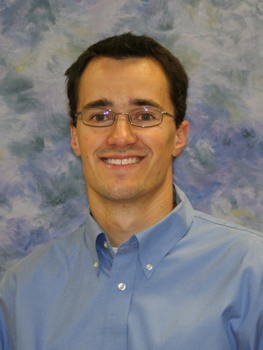Feb 21 2013
A Texas A&M University chemist has been awarded a prestigious award meant to kick-start the careers of promising junior faculty members.
 Steven Wheeler
Steven Wheeler
Steven E. Wheeler, an assistant professor in the Department of Chemistry who specializes in computational quantum chemistry, has received the National Science Foundation's Faculty Early Career Development Award, also known as the CAREER award. The research will be funded at $413,000 over five years, and is titled, "Controlling Supramolecular Self-Assembly of Planar and Curved Polycyclic Aromatic Systems."
Wheeler's research group uses computational models to understand and predict the behavior of molecules. One particular goal is to understand and learn to control the weak, non-bonded interactions between molecules that are vital to the packing of molecules in the solid state.
The CAREER award will support research aimed at controlling the molecular packing of large planar and curved molecules of interest for the development of organic electronic materials -- essentially new, non-silicon-based materials with unique electronic properties. The award also supports the development of an intuitive, freely available computational chemistry "app" for the Apple iPad, Wheeler said.
"The app will enable the incorporation of computational chemistry into the undergraduate chemistry curriculum and allow students to explore chemical principles at their own pace," Wheeler said.
Wheeler's research emphasizes building simple conceptual models that are useful to chemists, he said. Wheeler hopes to foster close ties and collaborations with experimental chemists to maximize the impact of his group's work on the community of chemistry researchers.
Wheeler joined the Texas A&M in 2010 after serving three years as a National Institutes of Health National Research Service Award postdoctoral fellow in the Department of Chemistry and Biochemistry at the University of California, Los Angeles. He earned his bachelor's in chemistry and physics from New College of Florida in 2002 and his doctorate in physical chemistry from the University of Georgia in 2006.
Wheeler recently received the highly competitive American Chemical Society COMP OpenEye Outstanding Junior Faculty Award for 2013 intended to provide greater visibility for worthy rising research stars. In Wheeler's case, his work on understanding and modeling non-covalent interactions has broad application in multiple areas ranging from biological chemistry to surface enhanced nanophenomena to atmospheric chemistry.
Wheeler is the third Texas A&M faculty member to receive a CAREER award so far this year. The others are Devesh Ranjan and Nicole Zacharia, both assistant professors in the Department of Mechanical Engineering.